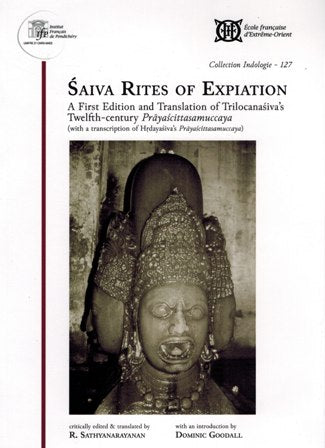Saiva rites of expiation: a first edition and translation of Trilocanasivas twelfth-century Prayascittasamuccaya, with a transcription of Hrdayasivas Prayascittasamuccaya...
Saiva rites of expiation: a first edition and translation of Trilocanasivas twelfth-century Prayascittasamuccaya, with a transcription of Hrdayasivas Prayascittasamuccaya... is backordered and will ship as soon as it is back in stock.
Couldn't load pickup availability
Genuine Products Guarantee
Genuine Products Guarantee
We guarantee 100% genuine products, and if proven otherwise, we will compensate you with 10 times the product's cost.
Delivery and Shipping
Delivery and Shipping
Products are generally ready for dispatch within 1 day and typically reach you in 3 to 5 days.
ISBN: 9788184702033
Edition: Pondicherry, 2015
Language: English
Subject: Philosophy
Publisher: ADITYA PRAKASHAN Indological Publishers & Booksellers
About the Book:
This critically edited and translated work, with an introduction by Domini Goodall and translation by R. Sathyanarayanan, offers a unique perspective on the Mantramarga tradition by focusing on the rites of expiation and reparation (prayascitta). While these rites may not appear central to the history of the tradition, they provide valuable insight into the social dimensions of Saiva religion. The book includes a first edition and translation of a South Indian compendium of Saiva expiation rituals compiled by the twelfth-century theologian Trilocanasiva, who is renowned for his Siddhantasaravali, a key text in Saivasiddhanta. The work of Trilocanasiva is contrasted with that of Hrdayasiva, a Northern theologian, whose treatise on the same subject is primarily based on large quotations from lost sources. A Nepalese palm-leaf manuscript from 1157 AD, preserved at Cambridge, is included as an appendix, offering the earliest surviving transmission of Hrdayasiva's text. A combined quarter-verse index provides readers with a helpful tool to navigate both Trilocanas and Hrdayasiva's works.





